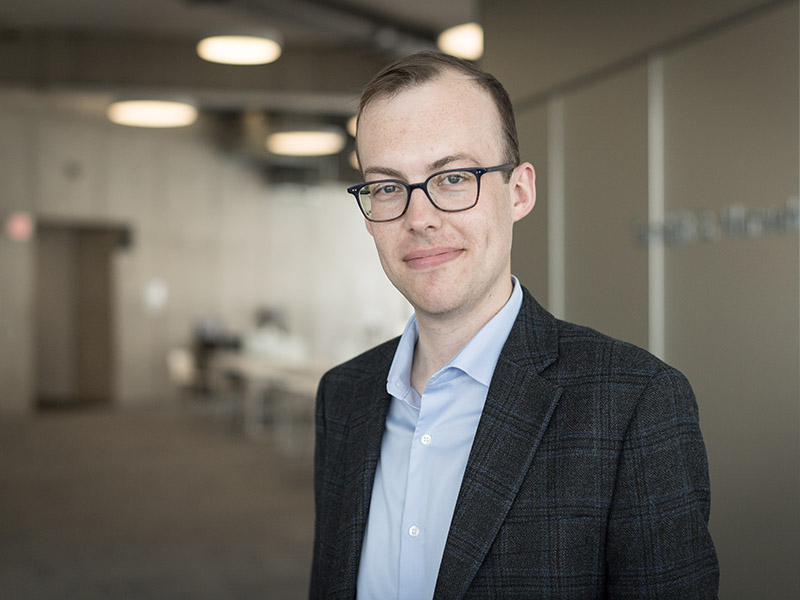Getting to know Robert Dixon, executive director of advancement, Faculty of Community Services

Robert Dixon is the new interim executive director of advancement at the Faculty of Community Services (FCS). We had a Zoom chat with him recently to get to know a bit more about his story and about his goals and plans for this role:
“I’m very excited about the role that universities play in our lives. Schools like the FCS are crucial for solving complex problems and making things happen in the world,” said Dixon.
Early beginnings:
“I studied theology at university. I loved all the big ideas, the languages, history, politics and music. Knowing I wanted a career with social impact, my first role was in charity governance, and it became clear that this could only work with effective fundraising. So as my wife was doing her doctorate at the University of Oxford, I got a role in development there, raising funds for medical research. They were on a three-billion-pound campaign, and it was the perfect training ground for my career. I have loved being in fundraising ever since.”
Listening:
“Philanthropy becomes an expression of people’s deepest values, of their vision for the world, often formed through life-changing experiences. A major gift can be one of the most important things someone will do in their lives. My role is to listen carefully, and to have often intensely personal conversations with people about their principles and ideals, so that together we can identify the impact that they want to have. And there’s no better place to have that conversation than universities: they are catalysts for new ideas and positive change. The atmosphere of curiosity and innovation is as compelling for donors as it is for faculty and students.”
Connecting:
“In my role as a fundraiser, I am privileged to meet a wide variety of people: some who do incredible work that benefits society, and others who have had great careers and want to find a way to have that social impact. My job is to bring these people together. It’s both an art and a science! And I love to see the importance of philanthropy to donors – the joy it gives them when they enable our students, staff and faculty to do great work.”
Why FCS?
“I was drawn to FCS because I think the work is really exciting. It has different names in different places. Some people call it “social innovation,” the university vision calls it “city-building.” What it comes down to is work that makes an impact in people’s lives, and helps to build healthy communities. Much of it isn’t that well known yet. Many people don’t know that several of our programs are the first of their kind in Canada, that we have the country’s largest nursing program, or that our academic leaders are having a sizable impact around the world – from urban planning in the GTA to children’s rights in the Middle East. And of course, during the pandemic, we have become hyper-aware of the value of essential work. From caregivers, to nurses, to city planners - we’ve learned we can’t have a healthy community without them. All of this makes it an exciting time to join FCS.”
On a personal note:
Dixon moved to Toronto in 2018 when his wife was offered a research fellowship at Sunnybrook Hospital. Outside the office, Dixon is an organist and choir director and has been involved with music at churches across the city. As an organ scholar at Cambridge, he enjoyed tours of the United States, Europe and India, seeing music as a way to bring people together. Like many of us, he’s added baking to his list of hobbies during the pandemic. “I like to recreate the comforts of home - English buns, Victoria sponges, and British-Indian-Restaurant style curries!”
Looking to the future:
“My big picture is shaped by (PDF file) Toward Ryerson 2030, the University’s advancement plan. We want to transform the campus over the next decade and beyond, and to be known among the top 200 universities worldwide. We are working to develop significant partnerships with donors to make that happen – investments in our people, our programs and our place. My aim is for FCS to be at the forefront of that campaign – well known not just among the local community, but around the globe.”


